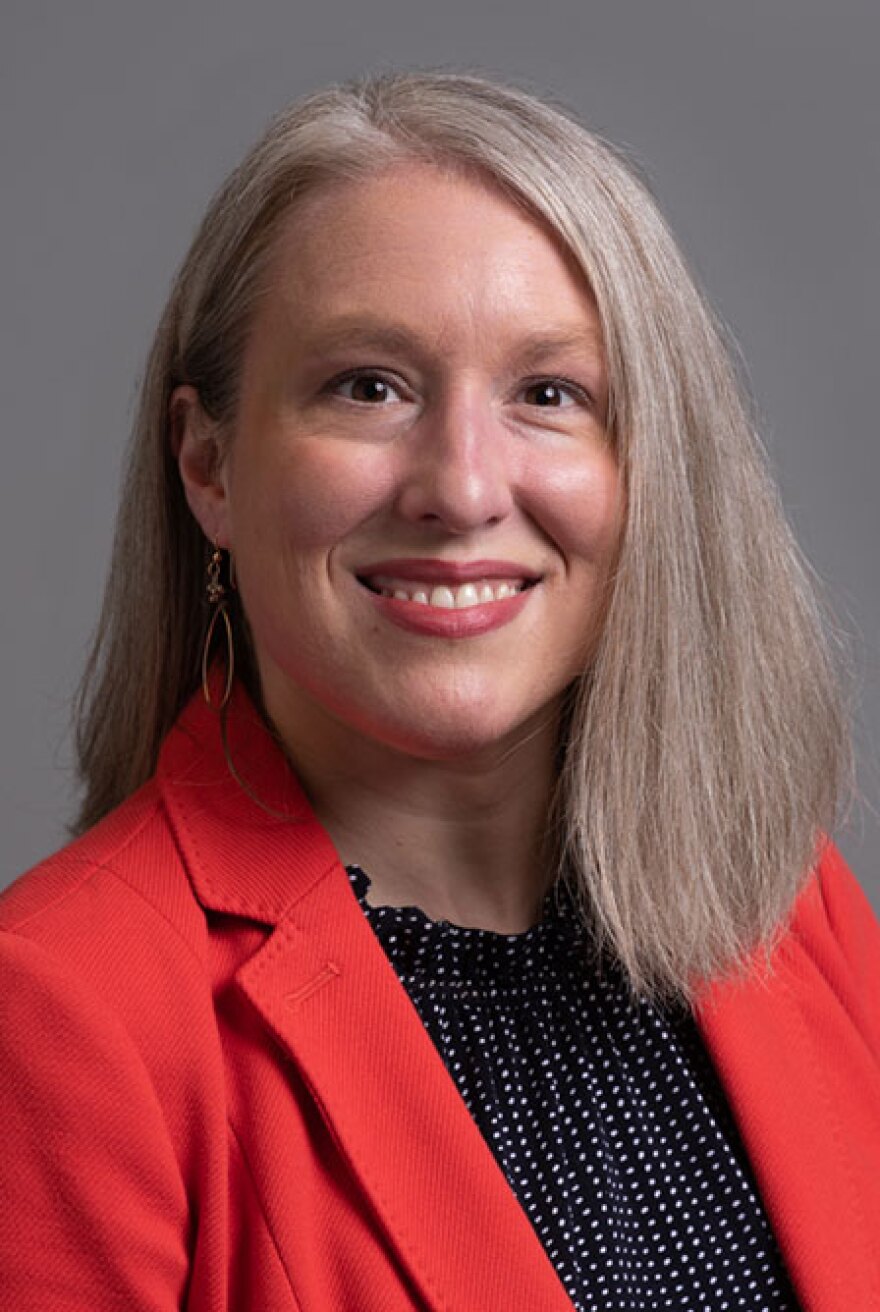Students from the University of West Florida are spending some class time behind bars.
“It’s a type of experiential learning that you just can’t replicate in the classroom,” said Dr. Jennifer Brinkley, an assistant professor of legal studies at UWF. She's one of the instructors behind the university’s Inside-Out Prison Exchange Program with the Santa Rosa Correctional Institution.
“My co-teacher, assistant professor of criminology and criminal justice Dr. Nicole Niebuhr, and I went through an intensive, 40-hour training with the Inside-Out Program, which is an international prison exchange program," Brinkley said. "We did that in the spring of 2021 and started meeting with prison officials and UWF officials all throughout that summer and planning the course, and we first started teaching the course this spring. We thought it would be a really great collaboration between our departments (and) also to build a community partnership with the prison.”
“I have a passion for prison reform and social justice issues, so this class was just something I could not pass up,” said Sarah Goldberg, a student in the legal studies program at UWF taking part in the program. She says that there was no formal training session before her first class at the prison, but she and the other students did go through some preparation.
“The first class meeting we had was not held at the prison, it was held at the university," said Goldberg. "And it was kind of a (debriefing) about the etiquette within a prison, the dress code within a prison, how to refer to the incarcerated individuals. So in that sense, it was kind of like a training (session), but nothing formal.”
The class Brinkley teaches at the prison is called Contemporary Social Justice Issues, which looks at issues such as the equal protection clause, victimology, mass incarceration, and reproductive justice. The incarcerated individuals and UWF students are equal participants in the class.
“The class ends with group projects where each group looks at a certain social justice issue like mental health in incarcerated populations or juvenile justice issues," said Brinkley. "And they really try to create a policy, thinking about it from all angles. (Angles) like funding and community support and all of that (to) create a policy to address that social justice issue.”
The class of 11 students and 13 incarcerated men meets at the prison every Friday morning. Goldberg says she gets insights into prison life in the class that she couldn’t get at the university.
“It’s a privilege to be able to learn about and hear about these kinds of issues from the people who are living them every day, and have no choice but to live them and know them," said Goldberg. "Their knowledge comes from experience whereas ours comes from textbooks and classrooms. So we learn just as much from them as they do from us.”
“And the best part of the course, I think, is the dialog," Brinkley said. "It’s a very dialog-driven course. We do lots of activities, we do lots of discussion. And I think that’s been the most enlightening part for me to see as a teacher is really the 'inside students' as well as the 'outside students' coming together and really engaging in critical thinking and critical listening. It’s been such a privilege.”

For their part, the incarcerated students in the class do not earn credits or incentives for participating. They are all in it for the intellectual experience.
Goldberg was surprised by the engagement and knowledge the incarcerated students bring to the class. She says society often portrays these people as merely “dumb criminals.”
“That has simply not been true," said Goldberg. "Throughout the course, we have seen that when they speak up in conversation they have just as much to say, if not more to say, than the students in the course. So that has been an eye-opening experience.”
The Inside-Out Prison Exchange Program was meant to introduce students to a unique situation and population for a one-of-a-kind educational experience. But Brinkley says it’s not just the students, both regular and incarcerated, that could eventually benefit from the program.
“Incarcerated populations are still members of our community," said Brinkley. "And once they are released, they will be more present, more visible members of our community. And so to allow them these educational opportunities while they are incarcerated is a benefit. It’s a benefit for everyone. It’s an important service that UWF and the Department of Corrections is allowing us to perform. To help these members of our community while they are incarcerated and prepare them for reentry.”
Brinkley says there are no plans to expand the program to other correctional facilities in the area, but she hopes to continue the program at the Santa Rosa County Correctional Institution next spring.


